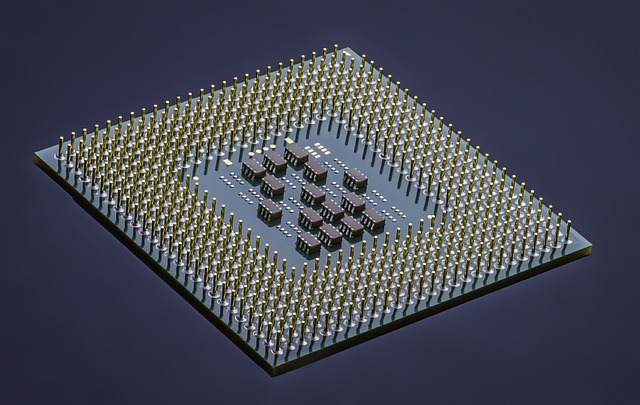Taiwan Semiconductor (TSM) has been my favorite semiconductor company for a very long time. It is the world’s largest contract manufacturer of advanced processor chips.
And now, Warren Buffett has joined the Taiwan Semi fan club. On November 14, a filing with U.S. securities regulators showed that Buffett’s Berkshire Hathaway (BRK.B and BRK.A) had purchased a $4.1 billion stake TSM.
The purchase of 60 million of the ADRs (American Depositary Receipts) of TSM was Berkshire’s largest new stock investment during the third quarter of 2022. TSM is now the 10th biggest position in the Berkshire portfolio.
The purchase is the latest move by the conglomerate into blue-chip technology companies. Buffett has, in recent years, shown a greater willingness to invest in technology stocks. The Berkshire portfolio now contains most prominently Apple, as well as computer and printer maker HP and cloud database firm Snowflake among its holdings.

Why Buffett Bought TSM
So why did Buffett buy Taiwan Semiconductor?
If you look at Apple, HP and Taiwan Semi, you will find one common theme – when purchased, all three looked cheap, with low price/earnings ratios. In TSM’s case, the PE is 12, thanks to the more than 40% drop in the stock year-to-date before the news broke of the purchase by Berkshire.
Buying cheaply-valued stocks like Taiwan Semi is hardly a surprise for a value investor like Buffett.
Also, there is a certain logic to Buffett’s TSM purchase and his $130 billion investment in Apple stock. After all, it is Taiwan Semiconductor that makes most of the advanced chips that go into Apple’s products like the iPhone.
Buffett buying shares in TSM purchase is most similar to his Apple purchase. Like Apple, Taiwan Semiconductor has been growing fast and is highly profitable despite being in a capital-intensive industry.
The company has increased its revenue at a five-year compound annual rate of 17% and has a five-year average return on capital of 16%, according to S&P Capital IQ. That blows away Intel on those two metrics: 2% and 12% respectively. And Taiwan Semiconductor’s operating margins of more than 50% are four times that of Intel. Intel’s PE ratio is 20.
Finally, TSMC has a trait that Buffett always looks for in companies he buys – a wide economic moat. Taiwan Semiconductor has a virtual monopoly on manufacturing the fastest computer chips – it’s a position TSM will not relinquish any time soon.
Its only real competitor is the Korean technology conglomerate, Samsung, which trades at a 25% higher multiple than Taiwan Semiconductor.
Of course, no discussion of TSM would be complete without a look at geopolitics. The tense relationship between China, Taiwan and the United States is a major factor as to why TSM stock trades so cheaply and one I’m sure Buffett considered.
The Financial Times U.S. Financial Commentator Robert Armstrong asked the question whether Buffett is right to look past this risk.
I like the argument he put forth. In the extreme case of a Chinese invasion of Taiwan, and the U.S. becoming involved militarily, all of us (and every stock) would be negatively affected in a major way. So putting a discount only on Taiwanese stocks does not make much sense. Either China-Taiwan-U.S. relations will improve, and TSM stock will erase its current discounted share valuation, or there is a conflict with China over Taiwan, in which case everything gets a discount.
Buy Taiwan Semiconductor
Keeep in mind too the long-term economic tailwind blowing in Taiwan Semiconductor’s favor – the organic growth of artificial intelligence, Internet of Things, and high-performance computing applications. This tailwind will likely last for decades.
And there is the company’s strong relationships with leaders in multiple subsectors: Apple in mobile chips, Nvidia in graphic processors and Xilinx in reprogrammable chips.
TSM’s has had consistent excess return on invested capital and return on equity figures, both averaging over 20% for the past decade. As of January 2022, the company hiked its return on equity target to 25% from 20%, in view of higher certainty in long-term drivers like high performance computing and autonomous driving.
In the past, Buffett has said his favorite holding period is “forever”. I believe this will apply to his purchase of TSM stock.
He will regard impending profits weakness at TSM as merely a blip that can be easily ridden out because of the company’s large cash buffer. For the quarter ending September 30, TSM had a cash pile of $50.13 billion, an increase of 41% year-over-year.





